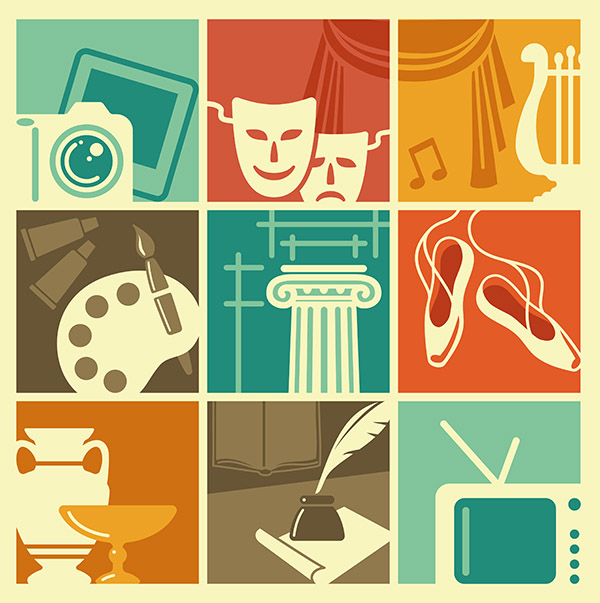Sceptic
I was in love with the word. I hated how accepting proclamations uncritically is considered acceptable or even obligatory by much of humanity. I hated how ‘he said, she said’ is our number one method of information gathering. I still do.
Even though I identified myself as a person of faith (still do), its association with fervent atheists did not deter me. As I got older, due to my scepticism, I became even less hostile towards atheism, accepting the possibility of my belief being the wrong one. Unlike my younger self, I make actual efforts to be more critical-minded.
An actual sceptic won’t instantly take sides in cases of rape allegations and won’t take the words of government officials and so-called experts for granted. He/she won’t until he/she has enough solid evidences and/or he/she has diagnosed the logic of the situations (or the lack of it). Of course, that’s not the case with many self-proclaimed sceptics nowadays.
They believe the existence of false allegations proves that every accuser is a liar and all of the accused ones are innocent! They believe every single statement made by governments are lies and choose to believe conspiracy-peddling public entities! They believe every scientist that debunks popular opinions is paid by greedy corporations, unlike the so-called ‘honest’ pseudoscientists!
You are not embracing the presumption of innocence, you are just a rape culture apologist who either sees nothing wrong with rape or believes rape is a myth!
You are not someone who refuses to bow down to the political establishment, either you are just paranoid (which means you need professional help, I am serious) or you arrogantly fancy yourself as the beholder of truths!
You are not analytical of experts’ words, either you are just scientifically illiterate and do not know what science actually is or you know what science is, but you hate how it destroys your unfounded world views!
Even though many of those individuals do not label themselves as ‘sceptics’, they love to blurt out words like ‘logic’, ‘facts’ and ‘reason’ over and over again, as if doing so instantly make them ‘sceptical’. The fact that far-right ideologues have a dominant presence among them really turn me off from the word.
I am not disgusted by the words ‘logic’, ‘facts’ and ‘reason’. Yet. But, I have become repulsed by the S-word to the point where I am wary of every person who try to represent themselves as ones.
Freedom
What I am going to say will be quite baffling: the older I get, the more I appreciate the idea of freedom while simultaneously the more I hate the word that represents it!
I love freedom because it is the reason why I am allowed to be myself. Online, I have the freedom to be outspoken about my opinions, many of which are deeply unpopular and may get me into legal problems in some countries. Offline, despite Indonesian society being repressive at times, I still have the freedom to express my discontent regarding the status quo. This is why my appreciation of the concept grows along with my age.
But, at the same time, I have also become more and more exposed to the raw, unromanticised depiction of the western ‘civilisation’ and I am frustrated by how deeply misguided many of its citizens are in their approach to freedom.
I hate how they believe in the absoluteness of freedom in which they can do anything they want without experiencing deserving consequences. Even the most level-headed constructive criticisms are too repressive for those privileged snowflakes who have never experienced a single day living under an actual authoritarian regime. In fact, I don’t think every single one of them believe in absolute freedom. They may claim they do. But, their actions say otherwise.
They accuse marginalised groups of being oppressive as their demand of humanisation rob bigots of their freedom to be bigoted. If that’s how you genuinely perceive life, you are just a bigot who exploits something you never believe in the first place.
If you are sincerely not bigoted, but you still take sides with bigots instead of their victims, you probably think freedom was fought for by unhinged individuals who wanted humans to be more arseholes towards each other. Basically, you are an edgelord who know nothing about the thing you supposedly believe in.
Besides empowering individuals who are afflicted with hatred, this mental retardation may have an effect outside the west. While I cannot speak for other countries, I can speak for Indonesia specifically.
Many Indonesians dream of the old days when free speech was a luxury. Why? Because we are tired of Islamists who constantly regurgitate infectious diarrhea out of their dirty mouths! We literally believe taking away freedom is the only cure!
Just imagine if those dictatorship-apologist Indonesians hear about westerners making a martyr out of Alex Jones (whose punishment I believe was not harsh enough). They would have a wrong idea of what freedom actually is: an entity in which unsavoury beings are perceived as the upsides, NOT the downsides.
That’s like promoting a pharmaceutical drug by citing cancer as its benefit, NOT as its side effect!
Tolerance
This used to be one of my favourite words ever! As an individual of a multicultural upbringing, who grew up in two very multicultural cities, who still have many foreign Facebook friends, who fortunately does not end up as an Indonesian Islamist, I love what the word ‘tolerance’ represents! Well, supposedly represent. Now, I hate it, possibly more than the two previous words.
As an Indonesian who is heavily exposed to the things going on in the US and, to a lesser extent, the UK and Australia, I constantly read and watch about individuals who preach about tolerance. Naive, younger me was easily dazzled by such positivity. Then, I experienced something called ‘growing up’.
Yes, I have encountered bigots, both Indonesians and westerners, who assert how their bigotry should also be tolerated. But, surprisingly, they are not the reason why I end up hating the word. I blame it on the so-called anti-bigotry warriors.
From my perspective as an Indonesian, the support for diversity in the west seems deceitful. Tokenism, feel-goodism and exoticisation are rampant in its practice of multiculturalism. So, every time I hear a westerner says he/she embraces tolerance, I am often suspicious he/she means he/she merely tolerates the existence of the ‘others’, whom he/she still refuses to perceive as fellow human beings.
Either that or he/she tolerates their existence simply because he/she likes their foods… or he/she wants to have sex with them. Just because you love Chinese foods or you fuck people with darker skins, that does not mean you are not a racist.
In Indonesia, the support for diversity seems far more sincere. Unlike westerners, our history allows us to embrace multiculturalism more organically. Our inter-ethnic relations are very good. Even though we may openly dislike the other cultures, ethnic differences barely define whom we befriend and marry.
Yes, we do have cases of extremely violent ethnic tensions. But, if you take a close look, they occur among rural citizens who had very homogenous upbringing and suffered cultural shock when they had to interact with the ‘others’. For cosmopolitan urban dwellers, this is almost never an issue. But, this is the extent of Indonesians’ so-called tolerance.
Whether contemporary or historical, the state of religions in Indonesia is not as good as advertised. While we are indeed different from Pakistan, Iran and Saudi Arabia, we are still far from a multi-religious haven. Of course, we can go straight to talk about the rise of Islamism. But, I believe also lies in the establishment.
Indonesian government only recognises six religions; compulsory ID cards have religious columns in which we must fill with one of the officially-recognised ones. To make it even more infuriating, indigenous beliefs aren’t included! Oh, and while I praise moderate Muslims for their opposition of violence, they still can be quite hostile to relatively more liberal and more reasonable interpretations of Islamic teachings and the lack of religiosity in general. How can you say we have religious tolerance when we embrace a caste of religious beliefs and try to silence reasonable dissenting voices?
Oh, and I should also mention the racism!
Many of us are still staunchly anti-Chinese. We are still suckers to the fear-mongering (not unlike how reactionary white Americans view Hispanic immigrants) and conspiracies (not unlike how anti-Semites view the Jews). We also love to neglect the Indonesian Papuans to the point where their region is arguably the most underdeveloped in the country while simultaneously suffering from very high living cost; we only care about the ‘exotic’ Papuan cultures and the Papuan gold mines.
Okay, I admit that my claim about anti-Papuans racism seems baseless as it is not a public discourse (I think). But, I base it on three observable facts about the Indonesian life: 1. Papuans are culturally and biologically distinct from Austronesians who form the majority of Indonesians; 2. Our beauty standards only include light skin colours, Austronesian and/or Eurasian facial features; 3. Jokes about dark skin colours are too rampant to the point where being born with them is seen as a personal defect. Those evidences are indeed circumstantial. But, can you blame me for having such thought?
Oh, and of course, don’t forget the classic homophobia. Even back when we were a so-called moderate Muslim nation, LGBT rights were not a thing. In fact, we have become more and more homophobic as years pass by.
Of course, despite everything, we still have the gall to get outraged by Chinese-Indonesians’ (allegedly) lack of nationalistic pride, to get outraged by the Papuan separatist movement, to get hostile every time someone refuses to romanticise the Indonesian life!
We still have the gall to call ourselves a bastion of tolerance! You cannot call yourself tolerant when your tolerance is selective!
Yes, there are some things we should never tolerate (e.g. Wahhabism). But, Indonesians also harbour intolerance towards anyone that are trivially different from them, like the aforementioned Chinese-Indonesians and Papuans, social and cultural liberals, sexual minorities, socialists, Jews, atheists and adherents of indigenous or new religious beliefs.
Yes, their differences are trivial. Their existence can be hurtful, but only to retards whose undeservingly high social status is being challenged.
So, every time I hear an Indonesian says he/she embraces tolerance, it is most likely he/she is a bootlicker who is only tolerant of anything approved by their beloved establishment.
For some of you, it seems I am being misguided by attacking individuals who fight prejudice. No, I am not attacking them. I am actually attacking people who claim to fight prejudice when their words and actions clearly reveal the complete opposite.
.
.
.
.
.
.
.
.
Donate to this deadbeat, preachy blogger on Patreon.







